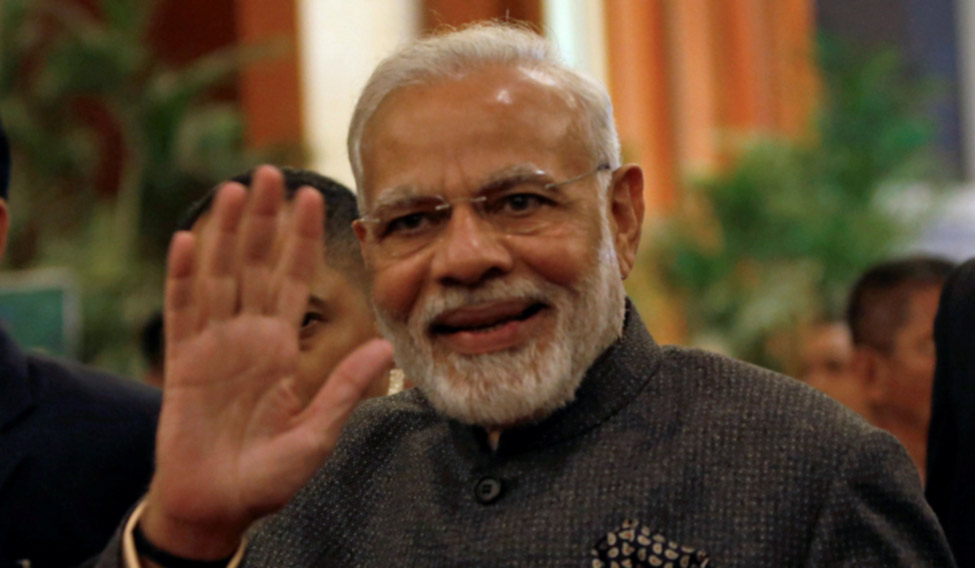The Modi wave is fading, at least according to his detractors. From the current economic slowdown to the rise of fringe right, there might be a multitude of reasons for the critics to validate their views. However, if you really think these factors have taken a hit on Modi's image as the national leader, then the survey by international research organisation Pew Research Centre will prove you otherwise.
Three years in, Modi remains very popular, says their “latest” survey. The survey further said Modi's favorable rating is 31 percentage points higher than that of Sonia Gandhi, the leader of the Congress party, and is 30 points more than that for Rahul Gandhi. Quite unexpectedly, the survey made headlines and resulted in hashtags.
Yet, there are a few unmissable points. The survey was conducted between February 21 and March 10, 2017. That was just a few months into demonetisation when people were still hesitant to question the effectiveness of a measure that amounted to burning the farm to kill a mouse. That was also a few months before the historic GST rollout. The image was never the same once the impact of these two reforms kicked in.
The survey had flaws galore. The seven sisters didn't matter, neither the folks where the Left holds the fort down the south. The citizens of Jammu and Kashmir, Himachal Pradesh and Uttarakhand also do not seem to figure in the samples collected by the survey. Yet the claim is indeed tall—that Modi is the most popular leader in India.
Thank you Captain Obvious; the Sanghs support their master and those in the Congress fold aren't in favour of the prime minister. It does not take an international survey to tell anyone that in a politically charged nation like the Bharat or India (based on whose side you are on) that the support a leader receives is mostly based on the party he/she belongs to than the development being carried out under him/her. “Backers of Modi’s Bharatiya Janata Party (BJP) express stronger support for the prime minister than do backers of the rival Indian National Congress party (INC), as might be expected,” read the study.
“BJP supporters have a more positive opinion on the economy than Congress supporters,” states the survey. And why shouldn't they? Conducted at a time when Modi-led saffron fold was still basking in the glory of a ban that had led to a new-found love for men in uniform manning the borders, the adulation Modi enjoyed was unparalleled. The survey would indeed have told a different story had it been conducted after the rollout of a tax system which continues to make no sense to most.
Unemployment, corruption, helping the poor (that's indeed some criterion), air pollution (smog, Delhi, ring any bell, Pew?), terrorism, rising prices (okay, they keep rising), communal relations (murders in the name of bovine mother don't matter, do they?) and situation in Kashmir (well, Kashmiris were not even part of the survey!) were some of the key pointers in the survey. Modi did fare well; the fans never let the man down. A puny little thing called objectivity seems to have taken a hike!
Despite periodic outbreaks of religious violence, relatively few Indians see communal relations as a very big problem, reads the study. In a country where rising intolerance is fodder for news every alternative day, it is refreshing to read an outlook that is so glaringly positive.
While it might appear naive to pick on the sample size of the population chosen to conduct the survey, it seems fallacious to assume that face-to-face interviews conducted with 2,464 people would be indicative of a nation's pulse.
Those that were in awe of the prime minister were also enamored by another political figure. Four-in-ten have confidence in President Donald Trump to do the right thing regarding world affairs.
I rest my case.










